
Understand Europe. Study Euroculture: An Interdisciplinary European Studies Programme
Euroculture in Groningen is proud of being a founding member of the Euroculture programme (1999), and of its achievements as Programme of Excellence. From 2010 onwards, we have been continuously ranked as one of the best European Studies Programmes in the Netherlands based on the Master Keuzegids. In 2024, Euroculture Groningen was once again noted as being the top-rated Master programme in European Studies in the Netherlands based on the National Student Survey (NSE) results.
The international staff of Euroculture hold doctoral degrees in diverse fields, including history, cultural studies, political science, European law, European studies, and international relations. In Groningen, the academic and research focus centers on cultural identity and its relationship to European integration in all its dimensions. Seminars emphasize concepts like “Europeanisation” and “Citizenship,” with significant attention also given to Trans-Atlantic relations and East Asia. Groningen is an excellent choice for residence, as this lively and pleasant university town boasts a large student population, comprising about one-fifth of its inhabitants. Students benefit from excellent facilities, not only for studying (ICT, library, Placement Office, International Office), but also for sports, entertainment, and leisure.
| Semesters | ||||
|---|---|---|---|---|
| CoursesCourse Catalog > | 1a | 1b | 2a | 2b |
| The Legal Construction of Europe (5 EC) | ||||
| Cultural History: Domains of European Identity (10 EC) | ||||
| Eurocompetence I (5 EC) | ||||
| The Cultural Construction of Europe (5 EC) | ||||
| The Political Construction of Europe (5 EC) | ||||
| Eurocompetence II (5 EC) | ||||
| Intensive Programme Euroculture (5 EC) | ||||
| Methodology & Theory (10 EC) | ||||
| Research Seminar I: Representing Europe (10 EC, optional) | ||||
| Research SeminarII: Integration Processes in East Asia and in Europe (10 EC, optional) | ||||
| Semesters | ||||
|---|---|---|---|---|
| CoursesCourse Catalog > | 1a | 1b | 2a | 2b |
| Euroculture Internship and Report (25 EC, optional) | ||||
| Master's Thesis Portfolio (5 EC) | ||||
| Eurocompetence III (5 EC) | ||||
| Master's Thesis: Writing and Completion (25 EC) | ||||
| Research Track (25 EC, optional) | ||||
Each semester has a different structure, and each university has its own academic culture and approach to the number of contact hours per week. Please contact euroculture rug.nl or find out more on euroculturemaster.eu if you have questions about the study culture in Euroculture.
In the first semester, students gain multidisciplinary knowledge about the European integration process and attend a practical module (Eurocompetence I). For the second semester, students in Groningen attend a methodology course, Eurocompetence II, and a research seminar. In the third semester, students opt for either a Research or a Professional Track and submit a Thesis Portfolio. The last semester consists of writing a thesis and completing Eurocompetence III (Project or PhD application).
| Programme options |
|---|
| Professional (track) In semester 3, students can opt for a work placement. The work placement is a follow-up of Eurocompetence I and II and links theoretical knowledge, skills and understanding with practical experience - transferring this knowledge to a non-academic audience. Students who opt for this track, will conduct it at an organisation or an institution relevant to Euroculture. This placement can be completed at either international or national organisations and institutions. The Euroculture placement coordinator and the Office for Student Affairs of the Faculty of Arts can assist you in finding a suitable placement provider, as well as with the administrative procedures. |
| Research (track) If you choose this track for semester 3, you will attend research courses either at a non-EU partner university (limited number of places for EU students only) or at any EU partner university. The Euroculture Research Track is a follow-up of Research Seminars, which deepens the student's theoretical knowledge, skills and understanding, and preferably relates to the student's MA thesis topic. This track is especially suited to students who would like to continue with a PhD or (academic) research career after completion oIf you choose this track for semester 3, you will attend research courses either at a non-EU partner university (limited number of places for EU students only) or at any EU partner university.f the Euroculture programme. Notes:
RESEARCH TRACK IN GRONINGEN:
|
Semester 1: Students opt for one of our eight partner universities in Europe. This can be (but does not have to be) Groningen!
Semester 2: Students continue their programme at another one of our eight partner universities in Europe.
Semester 3: Students may pursue our Research Track, non-EU Research Track, or a Vocational Track (Internship)
Semester 4: Students return to either their first or second semester university to finish their studies.
| Specific requirements | More information |
|---|---|
| previous education |
Candidates must have completed an academic BA degree in either the Arts, Humanities or Social Sciences or in a relevant discipline to Euroculture, e.g: European Studies, History, International Relations, Cultural Studies, Literature, Sociology, Political Sciences, Anthropology, Philosophy, Communication and Media Studies, International/ European Law, Theology. |
| grade list |
An overview of the results achieved so far within the Bachelor's degree programme and/or other university degree programmes is required |
| Curriculum Vitae (CV) |
A Curriculum Vitae (CV) |
| language test |
Additional requirements English: A minimum TOEFL iBT score of 93, or an IELTS score of 6.5 with no part (listening, reading, writing, speaking) scoring below 6.5 or Cambridge C1 Advanced or C2 Proficiency. |
| reference letter |
Two recommendation letters: submitted in two separate files. One of these letters has to be an academic letter, the other one might be from a relevant non-academic organization, or company (former employer). The letters should be written in English (regardless of the university you apply for), dated, printed on the official letterhead of the institution(s) the applicant is from and signed by the referee: contain the referee's affiliation, their contact details and explicitly mention their relation to the applicant. |
| (motivation-) letter |
A letter outlining the prospective student's motivation for selecting the programme (max. 1 page). |
| other admission requirements |
Additional application requirements and conditions, as well as extensive information on the application procedure, may be found on our Consortium Website: https://www.euroculturemaster.eu/application-procedure |
| Study programme | Organization | Transition |
|---|---|---|
| Theology | All Research universities |
No additional requirements More information:Interested students should apply through Euroculture's website, https://www.euroculturemaster.eu/ |
| Human Geography and Urban and Regional Planning | All Research universities |
No additional requirements More information:Interested students should apply through Euroculture's website, https://www.euroculturemaster.eu/ |
| International and European Law | All Research universities |
No additional requirements More information:Interested students should apply through Euroculture's website, https://www.euroculturemaster.eu/ |
| Art History | All Research universities |
No additional requirements More information:Interested students should apply through Euroculture's website, https://www.euroculturemaster.eu/ |
| Arts and Culture Studies | All Research universities |
No additional requirements More information:Interested students should apply through Euroculture's website, https://www.euroculturemaster.eu/ |
| Slavische Talen en Culturen | All Research universities |
No additional requirements More information:Interested students should apply through Euroculture's website, https://www.euroculturemaster.eu/ |
| Scandinavische Talen en Culturen | All Research universities |
No additional requirements More information:Interested students should apply through Euroculture's website, https://www.euroculturemaster.eu/ |
| Engelse Taal en Cultuur | All Research universities |
No additional requirements More information:Interested students should apply through Euroculture's website, https://www.euroculturemaster.eu/ |
| Duitse Taal en Cultuur | All Research universities |
No additional requirements More information:Interested students should apply through Euroculture's website, https://www.euroculturemaster.eu/ |
| Dutch Language and Culture | All Research universities |
No additional requirements More information:Interested students should apply through Euroculture's website, https://www.euroculturemaster.eu/ |
| Taal- en Cultuurstudies | All Research universities |
No additional requirements More information:Interested students should apply through Euroculture's website, https://www.euroculturemaster.eu/ |
| Political Science | All Research universities |
No additional requirements More information:Interested students should apply through Euroculture's website, https://www.euroculturemaster.eu/ |
| Sociology | All Research universities |
No additional requirements More information:Interested students should apply through Euroculture's website, https://www.euroculturemaster.eu/ |
| European Languages and Cultures | All Research universities |
No additional requirements More information:Interested students should apply through Euroculture's website, https://www.euroculturemaster.eu/ |
| Arts and Culture | All Research universities |
No additional requirements More information:Interested students should apply through Euroculture's website, https://www.euroculturemaster.eu/ |
| Philosophy | All Research universities |
No additional requirements More information:Interested students should apply through Euroculture's website, https://www.euroculturemaster.eu/ |
| Romaanse Talen en Culturen | All Research universities |
No additional requirements More information:Interested students should apply through Euroculture's website, https://www.euroculturemaster.eu/ |
| European Studies | All Research universities |
No additional requirements More information:Interested students should apply through Euroculture's website, https://www.euroculturemaster.eu/ |
| History, History (part-time) | All Research universities |
No additional requirements More information:Interested students should apply through Euroculture's website, https://www.euroculturemaster.eu/ |
| Minorities & Multilingualism | All Research universities |
No additional requirements More information:Interested students should apply through Euroculture's website, https://www.euroculturemaster.eu/ |
| Media Studies | All Research universities |
No additional requirements More information:Interested students should apply through Euroculture's website, https://www.euroculturemaster.eu/ |
| Law | All Research universities |
No additional requirements More information:Interested students should apply through Euroculture's website, https://www.euroculturemaster.eu/ |
| Arts, Culture and Media | All Research universities |
No additional requirements More information:Interested students should apply through Euroculture's website, https://www.euroculturemaster.eu/ |
| International Relations and International Organization | All Research universities |
No additional requirements More information:Interested students should apply through Euroculture's website, https://www.euroculturemaster.eu/ |
| American Studies | All Research universities |
No additional requirements More information:Interested students should apply through Euroculture's website, https://www.euroculturemaster.eu/ |
| Film and Literary Studies | All Research universities |
No additional requirements More information:Interested students should apply through Euroculture's website, https://www.euroculturemaster.eu/ |
| Liberal Arts and Sciences | All Research universities |
No additional requirements More information:Interested students should apply through Euroculture's website, https://www.euroculturemaster.eu/ |
| Study programme | Organization | Transition |
|---|---|---|
| Juridische Bestuurskunde | University of Groningen |
No additional requirements More information:Interested students should apply through Euroculture's website, https://www.euroculturemaster.eu/ |
| Communication and Information Studies | University of Groningen |
No additional requirements More information:Interested students should apply through Euroculture's website, https://www.euroculturemaster.eu/ |
| Human Geography and Planning | University of Groningen |
No additional requirements More information:Interested students should apply through Euroculture's website, https://www.euroculturemaster.eu/ |
| English Language and Culture | University of Groningen |
No additional requirements More information:Interested students should apply through Euroculture's website, https://www.euroculturemaster.eu/ |
Note: it's not possible to start in February. For more information, please contact the study advisor.
This programme has a numerus fixus with a maximum of 30 attendees a year.
Our Admissions Criteria can be found on our website: https://www.euroculturemaster.eu/application-procedure
Application deadlines may be found on: https://www.euroculturemaster.eu/application-procedure
| Specific requirements | More information |
|---|---|
| previous education |
Candidates must have completed an academic BA degree in either the Arts, Humanities or Social Sciences or in a relevant discipline to Euroculture, e.g: European Studies, History, International Relations, Cultural Studies, Literature, Sociology, Political Sciences, Anthropology, Philosophy, Communication and Media Studies, International/ European Law, Theology. |
| grade list |
An overview of the results achieved so far within the Bachelor's degree programme and/or other university degree programmes is required |
| Curriculum Vitae (CV) |
A Curriculum Vitae (CV) |
| language test |
Additional requirements English: A minimum TOEFL iBT score of 93, or an IELTS score of 6.5 with no part (listening, reading, writing, speaking) scoring below 6.5 or Cambridge C1 Advanced or C2 Proficiency. |
| reference letter |
Two reference letters should be submitted as separate files in English. The letters should be dated and printed on the official letterhead of the institution where the referee is based. The reference must be signed and state the referee's affiliation, contact details, and their relation to the applicant. One reference must be an academic reference. The other may also be an academic reference or instead a reference from a relevant non-academic organization. |
| (motivation-) letter |
A letter outlining the prospective student's motivation for selecting the programme (max. 1 page). |
| other admission requirements |
Additional application requirements and conditions, as well as extensive information on the application procedure, may be found on our Consortium Website: https://www.euroculturemaster.eu/application-procedure |
Note: it's not possible to start in February. For more information, please contact the study advisor.
This programme has a numerus fixus with a maximum of 30 attendees a year.
Our Admissions Criteria can be found on our website: https://www.euroculturemaster.eu/application-procedure
Application deadlines may be found on: https://www.euroculturemaster.eu/application-procedure
All information regarding tuition fees may be found on: https://www.euroculturemaster.eu/tuition-fees
Practical information for:
Euroculture prepares graduates for professions and research careers where knowledge of contemporary Europe and the European Union institutions are of relevance.
Due to the multi- and interdisciplinary nature of the Euroculture programme, its graduates find work in a broad range of sectors where expert knowledge of present Europe and European integration processes is required. A number of our graduates have also undertaken further studies on doctoral level.
The focus of the programme is on cultural and social developments, the political process of European integration, values, citizenship and cultural identity within Europe and its correlations with the wider world. Euroculture teaches students the methods and skills required to identify the European dimensions of social problems, to critically assess and interpret information about European institutions and organisations, and to understand the cultural aspects and factors that play a key role in the process of European identity formation and integration.
Euroculture alumni have found employment in the following areas/organisations:
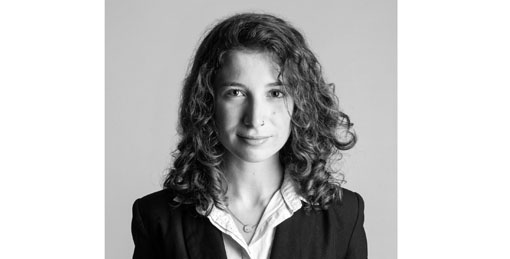
Our Euroculture staff conducts various research projects in the interdisciplinary field of Euroculture, also within larger projects with the partner universities of the consortium.
Articles from Euroculture scholars presented at the IP 2012 in Deusto published.
Articles from Euroculture scholars and keynote speakers (among which Dr. Janny de Jong, UG) that were presented at the Intensive Programme 2012 at the University of Deusto (Spain) have been published. The best Intensive Programme papers are always published in an annual volume, which can be found through this link.
Book in Euroculture Studies published in May 2013
"Europe – Space for transcultural Existence" is the first of a new series of publications “Studies in Euroculture” . The book is jointly edited by Janny de Jong and Margriet van der Waal (Groningen) and Martin Tamcke and Lars Klein (Göttingen). The publisher is Göttingen University Press.
The articles in this publication explore different dimensions of the field of Euroculture: it includes topics such as cosmopolitanism, cultural memory and traumatic past(s), colonial heritage, democratization and Europeanization as well as the concept of (European) identity in various disciplinary contexts such as law and the social sciences.
The book is available in print and as online publication.
European Studies and Europe: Twenty Years of EurocultureStudents' Research
During the master's programme students acquire knowledge in the Euroculture field of research and conduct their own research. These research projects are integrated in the methodology course, the research seminars as well as the master's thesis. Students opting for the Research Track will be trained in writing a PhD application (Eurocompetence III).
The department encourages students to participate in many conferences and symposia in the area of Euroculture and European Studies. The Programme's own main event is the Intensive Programme, a 7-day summer school where all students present their own papers. Since the 2010 IP, the best students papers have been published annually.
These publications can be found under Euroculture consortium publications at the University of Groningen website.
Examples of Euroculture MA theses can be found in the Euroculture thesis repository.
Find additional information on the research of our staff below.
Euroculture Staff: Discipline(s)/Field(s)
James Leigh (History; Social Sciences (Interdisciplinary); Cultural Studies)
Herman Voogsgeerd (International Relations; Law; Industrial Relations & Labor)
Margriet
van der Waal
(Cultural Studies; Humanities,
Multidisciplinary; Literary Theory & Criticism)
Senka
Neuman-Stanivukovic
(International Relations)
Marek
Neuman
(International Relations)
Yuliya Hilevych (History; History of Medicine; Social Sciences (Interdisciplinary))
Rachel White (History; Religion; Humanities (Multidisciplinary))
Stefan Couperus (History; Political Science)
Ron Holzhacker (Political Science; Law; Asian Studies)
Josh Prada (Language & Linguistics; Education & Educational Research; Psychology (Social))

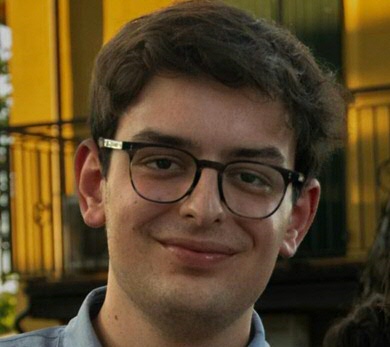
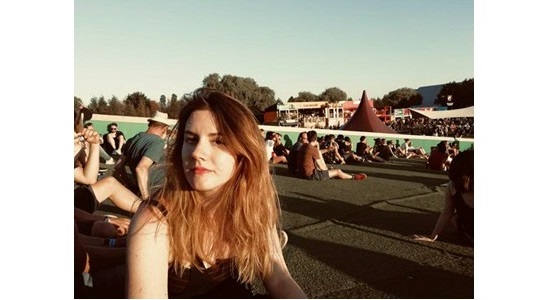
I applied to the MA Euroculture, because I felt my IR studies were excessively theoretical and I needed a more practical approach.
That is a difficult question actually: I am from the Hungarian minority in Transylvania (Romania). I consider myself Hungarian but I have never lived in Hungary. I started my first Higher Education in Cluj-Napoca in English, at the Babes-Bolyai University, European Studies Faculty.
I was a Blue Book trainee in the European Commission, DG Education and Culture, Unit Higher Education while finishing my last semester of Euroculture in Groningen. During the last month of the internship, I started applying to different organizations. The European Association for International Education called me back and I attended an interview in Amsterdam for a full position as a knowledge development assistant. There was three weeks between my internship and the start of the job, but I was hired before I was done in Brussels. The connection with my job is that I studied at four different universities in four countries so I had a lot of experience with internationalisation already when they hired me in DG EAC as a trainee. Having five months of policy and programme experience in the EC led me to apply for the position at the EAIE, where I also work on higher education and internationalisation.
As a European Studies student in Cluj Napoca I was lucky to be able/ encouraged by the faculty to complete shorter and longer exchanges during my Bachelor. After finishing my Erasmus semester in Prague in 2016, I was in love with studying and living abroad, so I was sure I would apply somewhere different for my master studies. I wanted to experience something other than Central Europe this time, so The Netherlands was an obvious option considering the tuition fees and cost of living.
I was interested in European Studies and IR programmes, but the criteria restrained me a bit: even though my overall English exam (IELTS, C1) results were high, my writing was under 7.5, thus I could not apply to the research tracks or some more specific programmes. In the end, I was admitted to IRIO and accepted the offer without hesitation.
Months later, writing my IRIO thesis, I noticed the Euroculture poster on the corridor of the Harmoniegebouw. I applied, because I felt my IR studies were excessively theoretical and I need a more practical approach to find a job later in life, as I knew I am not PhD material. I talked with some alumni and student ambassadors and they convinced me that this is the right master if I am looking for practical experience.

For me, Euroculture was an incredible multicultural experience that provided me with so many stimuli and challenges and that was key to step out of my comfort zone and broaden my horizons.
Being passionate about EU affairs and willing to work in an international environment, I found that graduating from Euroculture helped me to find jobs matching my interests.
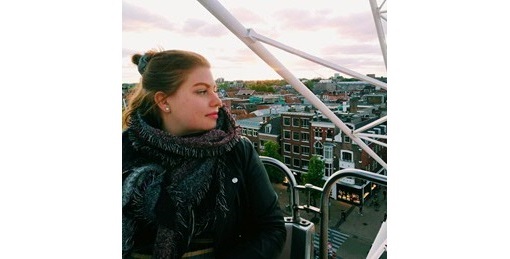
I am Iida Honen, 27 years old, originally from Finland. I got my joint master’s degree from the University of Groningen and The University of Strasbourg (in France) in November 2020. Right now I am living in Brussels where I have worked since September 2020. I am working at the European Parliament as an assistant to a Finnish Member of the European Parliament. I actually started my job as a trainee last September but the traineeship quickly turned into a job - mainly because there was a lack of time and knowledge for communication in my MEP’s office and I managed to fill that gap. So there was definitely a close link between my traineeship and the first “real” job after graduating!
I have also done another traineeship earlier - during my studies - from September 2019 until February 2020. This traineeship took place at Finland’s Permanent Representation to UNESCO and I worked for the Finnish Ministry for Foreign Affairs. Even though this traineeship did not really create an actual job for me, it was my first step in the field of international cooperation/politics and it contributed to getting my next internship at the European Parliament without a doubt.
I did my master’s degree in European Studies at the University of Groningen. I studied in the Erasmus Mundus Euroculture programme, which meant that I actually only spent one of my four semesters physically in Groningen: during the programme you study in two different European universities. My other university was the University of Strasbourg where I started the programme in autumn 2018. The semester that I spent in Groningen was spring 2019.
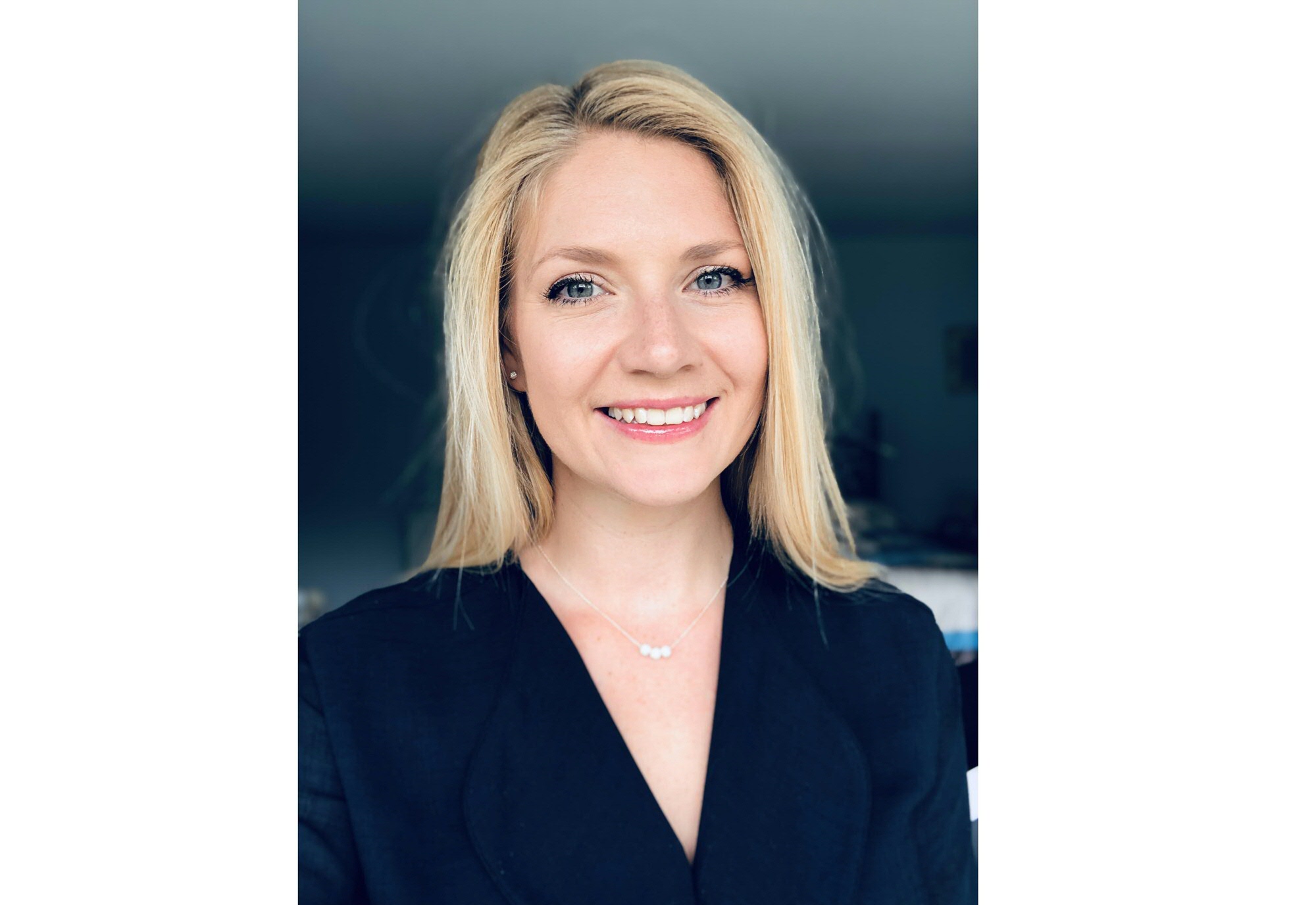
Before Euroculture, I really struggled to get roles in the UK Government, possibly because my CV wasn't that relevant to the public sector. I believe that Euroculture gave me the headspace, confidence and focus to plan and execute my career switch from the private sector into the public sector, as well as the EU-specific knowledge to excel in the EU-related roles I've had over the last 6 years.
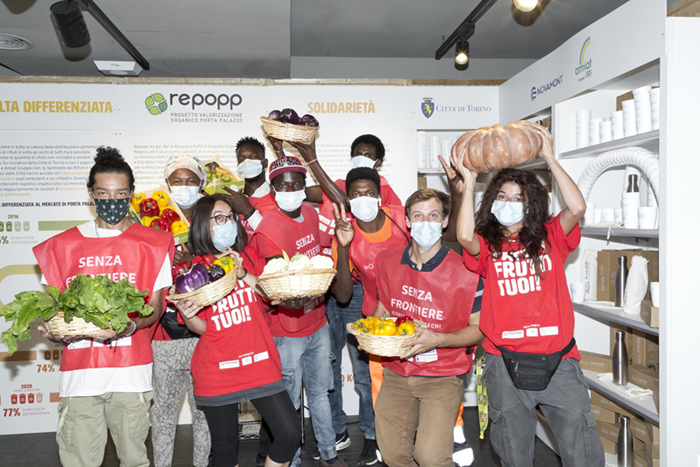
After living around and outside Europe for five years, UG alumnus Giulio Baroni moved to Italy and now works as a Project Manager at an NGO. He talks about his work and how his studies and experiences contributed to his current position.